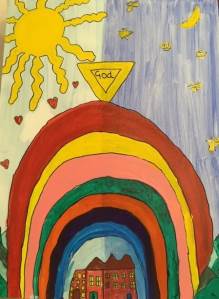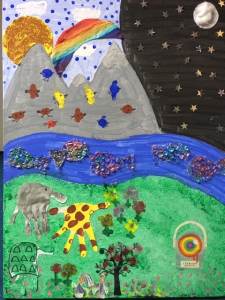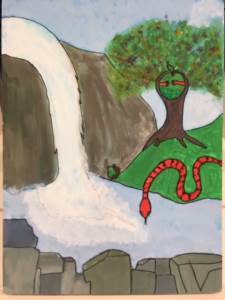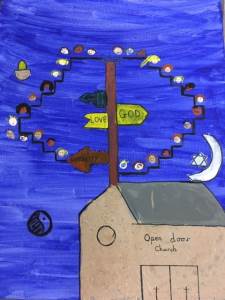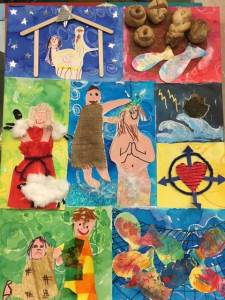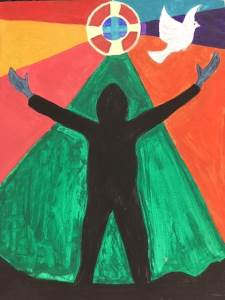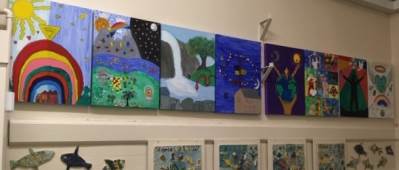Curriculum Religious Education
At St James’ Primary School, we follow the Manchester Diocese RE Agreed Syllabus supported by RE Today resources which means that RE makes a positive contribution to our pupils’ learning. Knowledge and skills developed by RE contribute to pupils’ readiness to participate in life in modern, diverse Britain and in a plural world. Good RE is never coercive: this area of learning is not about making pupils into believers but seeks to help them become literate and articulate about religions and beliefs, and to be thoughtful members of a plural society, so that in learning about religions and worldviews they are able to make informed choices about how they want to live their lives whilst also understanding more about the faith of other people they meet. As such, it is relevant to every pupil and every citizen of our region.
Parents and carers can choose to withdraw their child from all or part of RE teaching and learning. In this case, we would ask parents and carers to contact the school and discuss their request.
The teaching and learning approach, underpinned by our school vision, mission (RACE: Respect, Aspiration, Community, Enquiring Minds), has three core elements, which are woven together to provide breadth and balance within teaching and learning about religions and beliefs, underpinning the aims of RE. Teaching and learning in the classroom will encompass all three elements, allowing for overlap between elements as suits the religion, concept and question being explored. These elements set the context for open exploration of religion and belief. They offer a structure through which pupils can encounter diverse religious traditions alongside non-religious worldviews – which reflect the backgrounds of many pupils in our schools. The elements present a broad and flexible strategy that allows for different traditions to be treated with integrity. These elements offer a route through each unit while also allowing for a range of questions reflecting different approaches, for example, from religious studies, philosophy, sociology, ethics and theology.

End of phase outcomes:
Element 1: Making sense of beliefs
Identifying and making sense of religious and non-religious beliefs and concepts; understanding what these beliefs mean within their traditions; recognising how and why sources of authority (such as texts) are used, expressed and interpreted in different ways, and developing skills of interpretation.
|
End of Key Stage 1. Pupils can … |
End of Lower Key Stage 2. Pupils can … |
End of Upper Key Stage 2. Pupils can … |
|
|
|
Element 2: Understanding the impact
Examining how and why people put their beliefs into practice in diverse ways, within their everyday lives, within their communities and in the wider world.
|
End of Key Stage 1. Pupils can... |
End of Lower Key Stage 2. Pupils can... |
End of Upper Key Stage 2. Pupils can... |
|
|
|
Element 3: Making connections
Evaluating, reflecting on and connecting the beliefs and practices studied; allowing pupils to challenge ideas studied, and the ideas studied to challenge pupils’ thinking; discerning possible connections between these and pupils’ own lives and worldviews – their ways of understanding the world.
|
End of Key Stage 1. Pupils can... |
End of Lower Key Stage 2. Pupils can... |
End of Upper Key Stage 2. Pupils can... |
|
|
|
Understanding Christianity - The Big Frieze
Our Big Frieze







